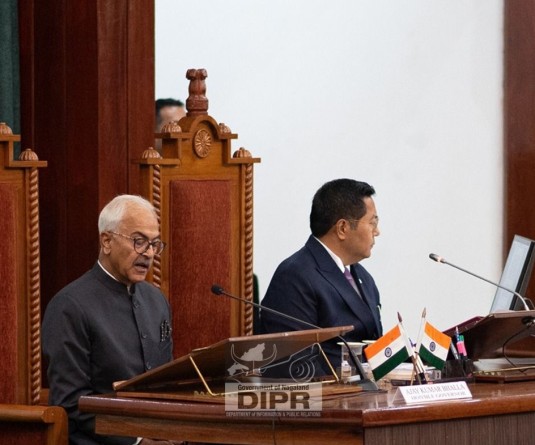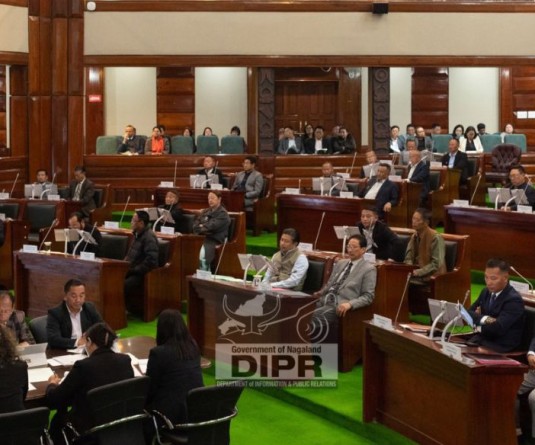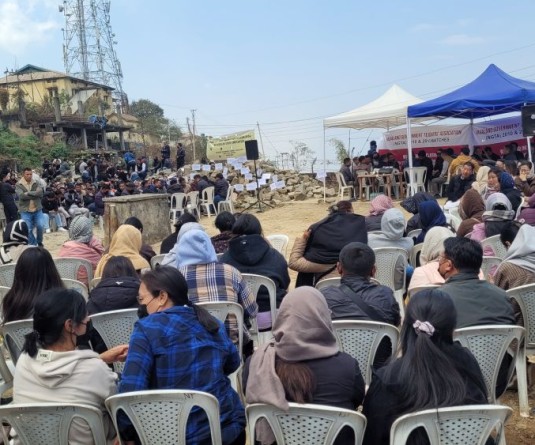
Morung Express News
Dimapur | September 27
The Supreme Court of India has given the Government of Nagaland till Monday, October 1, to file a Compliance Report on steps to be taken to control hate crimes and mob lynching in the State.
The Order to this effect—extension of a principal judgment passed on July 17 this year—was passed on September 24 by a Supreme Court Coram comprised of Chief Justice of India, Dipak Misra, Justice AM Khanwilkar and Justice DY Chandrachud in the case of Tehseen S Poonawalla vs. Union of India and Ors.
On July 17, the SC had issued preventive, remedial and punitive measures that States need to follow to curb hate crimes and mob violence. These measures were to be carried out “within four weeks” of the judgment by the Central and State governments, and reports of compliance to be filed within the same period before the Court.
However, “9 States and 3 Union Territories, namely, Arunachal Pradesh, Himachal Pradesh, Karnataka, Manipur, Meghalaya, Mizoram, Nagaland, Punjab, Telangana, Dadra & Nagar Haveli, Daman & Diu and National Capital Territory of Delhi have not submitted the compliance reports,” informed the Commonwealth Human Rights Initiative (CHRI) to The Morung Express, quoting the SC Order of September 24.
The SC has directed these states to file their Compliance Reports within a week, from September 24. Moreover, the Court directed all States to “upload the action taken by them so that all concerned can be aware about the steps taken by the States, which are necessary for creating peace and harmony in the society and deterring individuals who take the law into their own hands.”
“Directing states to ‘upload’ action taken seems to indicate that states are to publish action taken in the public domain, which can begin with the official websites of Home and Police departments,” noted the CHRI.
Senior counsel, Indira Jaising, told the Court that the Centre and State governments have not complied with the preventive measure that they are to “broadcast on radio and television and other media platforms including the official websites of the Home Department and Police of the States that lynching and mob violence of any kind shall invite serious consequence under the law.”
The Attorney General and Additional Solicitor General assured the Court that all State governments will comply with this direction within a week, that is, by October 1.
Nagaland State was represented in the hearing by advocates K Enatoli Sema and Amit Kumar Singh.
SC upholds majesty of law, plurality, human rights
The judgment passed on July 17 was an exceptionally strong indictment of the hate crimes that have come to define the increasingly intolerant society of India today. It laid the responsibility of curbing all forms of vigilante justice on the State.
“There can be no shadow of doubt that the authorities which are conferred the responsibility to maintain law and order in the States have the principal obligation to see that vigilantism…does not take place. When any core group with some kind of idea take the law into their hands, it ushers in anarchy, chaos, disorder and, eventually, there is an emergence of a violent society. Vigilantism cannot, by any stretch of imagination, be given room to take shape, for it is absolutely a perverse notion,” stated the SC Coram in the nearly 10,000 words judgment that detailed the necessity of freedom of speech and expression, apart from the respect for diversity and pluralism that defines the Union of States called India.
A vigilante is a civilian or organization acting in a law enforcement capacity (or in the pursuit of self-perceived justice) without legal authority.
Upholding the value of human life, the apex Court maintained “It is our constitutional duty to take a call to protect lives and human rights. There cannot be a right higher than the right to live with dignity and further to be treated with humanness that the law provides.”






